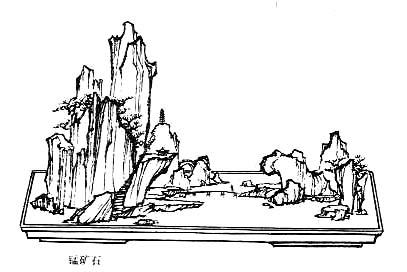Lun Yu 
 – The Analects of Confucius
– The Analects of Confucius
The Master discusses with his disciples and unveil his preoccupations with society. Tr. Legge (en), Lau (en) and Couvreur (fr).
                                       | |||||||||||||||||||||||||||||||||||||||||||||||
| |||||||||||||||||||||||||||||||||||||||||||||||
 |  |
Lunyu XV. 33. (424)
How knowledge without virtue is not lasting, and to knowledge and virtue a ruler should add dignity and the rules of propriety.
1. The Master said, "When a man's knowledge is sufficient to attain, and his virtue is not sufficient to enable him to hold, whatever he may have gained, he will lose again.
2. "When his knowledge is sufficient to attain, and he has virtue enough to hold fast, if he cannot govern with dignity, the people will not respect him.
3. "When his knowledge is sufficient to attain, and he has virtue enough to hold fast; when he governs also with dignity, yet if he try to move the people contrary to the rules of propriety:– full excellence is not reached."
Legge XV.32.
The Master said, 'What is within the reach of a man's under- standing but beyond the power of his benevolence to keep is some- thing he will lose even if he acquires it. A man may be wise enough to attain it and benevolent enough to keep it, but if he does not rule over them with dignity, then the common people will not be reverent. A man may be wise enough to attain it, benevolent enough to keep it and may govern the people with dignity, but if he does not set them to work in accordance with the rites, he is still short of perfection.'
Lau [15:33]
Le Maître dit : « Ayant la connaissance pour l'atteindre, mais une plénitude humaine inapte à la garder, bien qu'on l'ait obtenue, on la perd immanquablement. Ayant la connaissance pour l'atteindre, et la plénitude humaine capable de la garder, si l'on ne s'y maintient pas avec sérieux, le peuple, dans ce cas, n'est plus respectueux. Ayant la connaissance pour l'atteindre, et la plénitude humaine capable de la garder, que l'on s'y maintienne avec sérieux, mais qu'on la mette en œuvre sans rites, ce n'est pas excellent1. »
Couvreur XV.32.
知識と、人間性が備わっていても、威厳がなければ、部下の尊敬は得られない。
知識・人間味・威厳が備わっていても、無礼な態度で部下を動かそうとするのではよろしくない。

The Analects of Confucius – Lun Yu XV. 33. (424) – Chinese off/on – Français/English
Alias the Lunyu, the Lun Yü, the Analects, les Entretiens du maître avec ses disciples.
The Book of Odes, The Analects, Great Learning, Doctrine of the Mean, Three-characters book, The Book of Changes, The Way and its Power, 300 Tang Poems, The Art of War, Thirty-Six Strategies
Welcome, help, notes, introduction, table.
Index – Contact – Top
